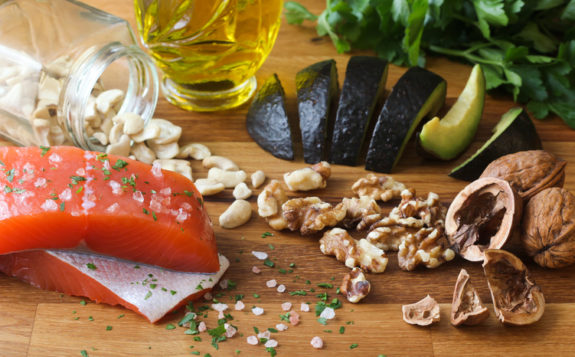What is the Mediterranean Diet?
Discover why the Mediterranean Diet is the world’s healthiest way of eating and best overall diet.
By: Jodie Shield, RDN, MEd
Olive oil. Ripe tomatoes. Feta cheese. Red Wine. The Mediterranean Diet is anything but a diet! It’s a delicious lifestyle based on fresh ingredients and the traditional cuisine of countries surrounding the Mediterranean Sea in particular Southern Italy, Spain, and Greece. It gets even better. The Mediterranean Diet is also your passport to good health. Numerous studies have found that eating a Mediterranean Diet can help you:
- Lose weight and keep it off
- Lower risk of heart disease and high blood pressure
- Fight certain cancers
- Reduce asthma
- Avoid diabetes
- Resist depression
- Ward off Parkinson’s Disease
If you want to explore this fresh and healthy way of eating, there’s no need to travel to Southern Europe. Here’s a Mediterranean Diet itinerary for you to follow when shopping in your local supermarket. Simply incorporate these ten core principles into your menus and say bon voyage to boring, processed meals.
- Veg out! Vegetables play a starring role in the Mediterranean Diet, and they’re essential for providing a fresh taste and delicious flavor. Try filling half your plate with veggies at lunch and dinner. Some tasty examples include a Classic Greek Salad with tomatoes, cucumbers and red onion, Baked Eggplant with Parmesan Cheese, and fresh greens drizzled with olive oil and a splash of vinegar.
- Pick fruit. Satisfy your sweet tooth by eating fresh fruit for dessert rather than sugary, processed treats. Some tasty options include juicy red grapes, orange wedges, sliced pineapple, fresh berries, and crisp apples.
- Switch to whole grains. They’re naturally rich in nutrients, fiber and have a delicious nutty taste. Typical Mediterranean grains include bulgur, barley, faro, and brown rice.
- Don’t forget dairy. In addition to milk, try Greek yogurt, plain yogurt, and small amounts of cheeses as a snack, or tossed into salads such as my Spinach Salad with Strawberries and Feta.
- Rethink protein portions. Enjoy smaller appetizer-size portions of meat and chicken and load up on veggies and whole grains. Or try a meatless meal once a week. One of my favorite recipes is Spring Vegetable Frittata.
- Go fish! Eat seafood at least twice a week. To reap the heart-healthy benefits include omega-3 fatty acid rich fish such as tuna, salmon, and shellfish such as clams, mussels, and oysters. My family loves Linguine in White Clam Sauce.
- Enjoy olive oil. Pass on butter and dip whole grain bread into olive oil seasoned with fresh garlic. Lightly drizzle heart-healthy olive oil over veggies and cooked pasta.
- Snack on nuts and seeds. They naturally provide a healthier type of fat compared to processed chips and snack crackers. Each day enjoy a handful of pistachios, almonds, pecans, or sunflower seeds.
- Sip red wine. If you don’t drink there is no reason to start, but the Mediterranean Diet typically includes a moderate amount of red wine. This amounts to no more than 5 ounces daily for women; no more than 10 ounces daily for men. Amounts greater than this have been linked to other health problems such as cancer.
- Be active and share your meals. Good food alone isn’t enough to live a healthy life. Make sure you get plenty of exercise every day and eat with family and friends.
For more information about how to enjoy a Mediterranean-style of eating visit the Old Ways/Mediterranean Foods Alliance. And be sure to download my FREE recipe app Time to Eat Healthy Homemade Meals in Minutes for more quick and easy Mediterranean recipes.






